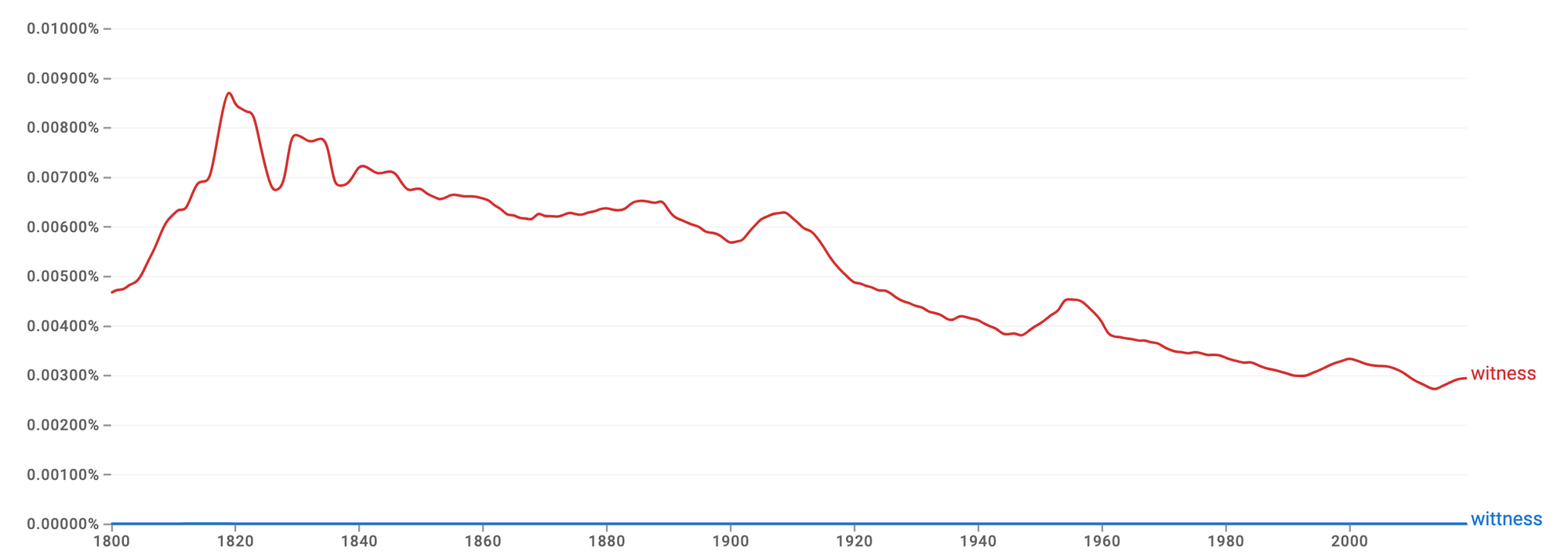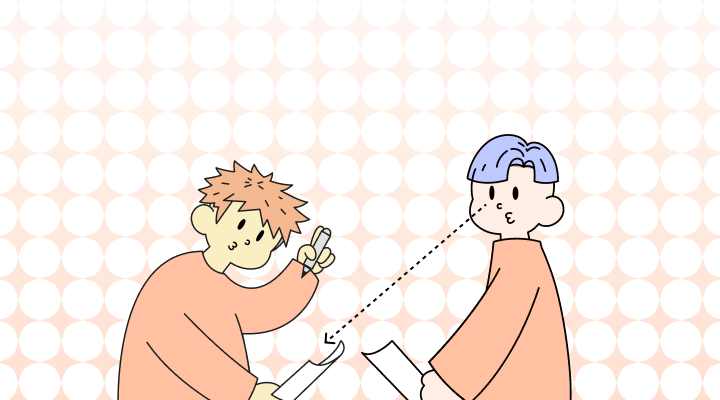- "Wittness" is an incorrect spelling of the word "witness."
- As a noun, a witness is an individual who has firsthand knowledge or observes an event, situation, or transaction and can provide testimony or evidence about it, often in a legal context. Witnesses play a crucial role in providing information to support or refute claims in legal proceedings.
- As a verb, witness means to see, observe, or experience an event, situation, or behavior. It can also refer to giving testimony or providing evidence based on firsthand knowledge or observation.
❌ I was fortunate to wittness the breathtaking sunset over the mountains during my vacation last week.
✅ I was fortunate to witness the breathtaking sunset over the mountains during my vacation last week.
In the sentence, "witness" as a verb is used to convey the act of personally seeing or experiencing the sunset over the mountains during the speaker's vacation.
What does "witness" mean?
As a noun, a witness is someone who sees or experiences something firsthand, like a detective at a crime scene or a friend at your wedding. They can give testimony of what they saw, like a leaf witnessing the changing seasons or you witnessing a shooting star.
As a verb, to witness means to experience something yourself, actively noticing and observing it. You can witness history or witness the beauty of a sunrise. It's like being present and taking in the moment, becoming part of the story rather than just reading it.
So, whether you're a spectator or a participant, a witness adds their unique perspective to the world around them.

The use of "wittness" and "witness" over time
The Ngram graph below shows how often "wittness" and "witness" have been used from the 1800s to the 2000s. "Witness" has steadily declined in use since peaking in the 1820s, while its misspelling "wittness" has always seen nearly zero use.

How to pronounce "witness"
In both British and American English, "witness" is pronounced like "wit·nuhs".
This is just the standard pronunciation, and there may be slight variations depending on regional accents and individual speech patterns.
Why would we misspell "witness" as "wittness"?
1. Phonetic Confusion: The pronunciation of "witness" can be a bit tricky, especially for people with certain accents or dialects. The double "t" sound can get slurred or softened, making it sound more like "wittness." This similarity in sound can lead to confusion when spelling the word.
2. Typo: Someone could add an extra 't' while typing "witness", especially if they are writing quickly or not focused on spelling accuracy.
3. Faulty Analogies: Some people might mistakenly believe that "wittness" is a variant spelling of "witness," similar to how "fulfill" and "fulfil" are both accepted spellings. However, in this case, "wittness" is not a recognized word in any major dictionaries.
Other common misspellings of "witness"
- Witnes
- Witnss
- Witnese
- Wittnes
- Witniss
Example sentences of the misspelling of "witness" as "wittness"
- It's crucial to note that the correct spelling is "witness," not "wittness," when referring to someone who observes or experiences an event.
- Please be aware that using "wittness" is an incorrect spelling; the accurate term is "witness" when discussing individuals with firsthand knowledge of a situation.
- Make sure to avoid the common misspelling "wittness" – the proper spelling is "witness" when describing someone who can provide testimony or evidence.
- When writing about those who have seen an occurrence, remember that "witness" is the correct spelling, and "wittness" is a common misspelling to be avoided.
- Incorrectly spelling "witness" as "wittness" can impact the clarity of your communication, so it's important to use the accurate spelling in your writing.
Example sentences of "witness"
- The bystander became a crucial witness to the accident and provided a detailed account of what had transpired.
- As a witness to the crime, Sarah was called to testify in court about what she had seen on the night of the incident.
- We were fortunate to witness the rare celestial event, as the meteor shower lit up the night sky.
- The security camera footage served as a reliable witness, capturing the movements of the intruder in the building.
- During the trial, the eyewitness bravely stepped forward to witness and share their recollection of the events that occurred.
- The historian's detailed journals act as a valuable witness to the daily life and customs of the ancient civilization.
- As the only witness to the magical phenomenon, Emily struggled to find the right words to describe the enchanting experience.
- Alex was honored to witness the historic moment when the treaty was signed, marking the end of the long-standing conflict.
- The forensic expert was called as a witness to provide scientific evidence and analysis related to the crime scene.
- The old photographs served as a poignant witness to the passage of time, capturing memories of a bygone era.
🖊️ Seing vs. Seeing: Which is Correct?
🖊️ Hidding vs. Hiding: Which Is Correct?
Synonyms for "witness"
Synonyms for the verb "witness" (meaning to see or observe) include:
- Observe
- See
- Perceive
- View
- Watch
- Behold
- Notice
- Experience
Synonyms for the noun "witness" (referring to a person who observes or testifies) include:
- Observer
- Eyewitness
- Viewer
- Spectator
- Onlooker
- Testifier
- Looker
- Beholder

Want to sound like a native speaker?
Engram’s AI-powered grammar checker makes your English sound like a native speaker’s, suggesting natural English expressions on top of fixing grammar, spelling, punctuation, word order, and vocabulary.

References:














